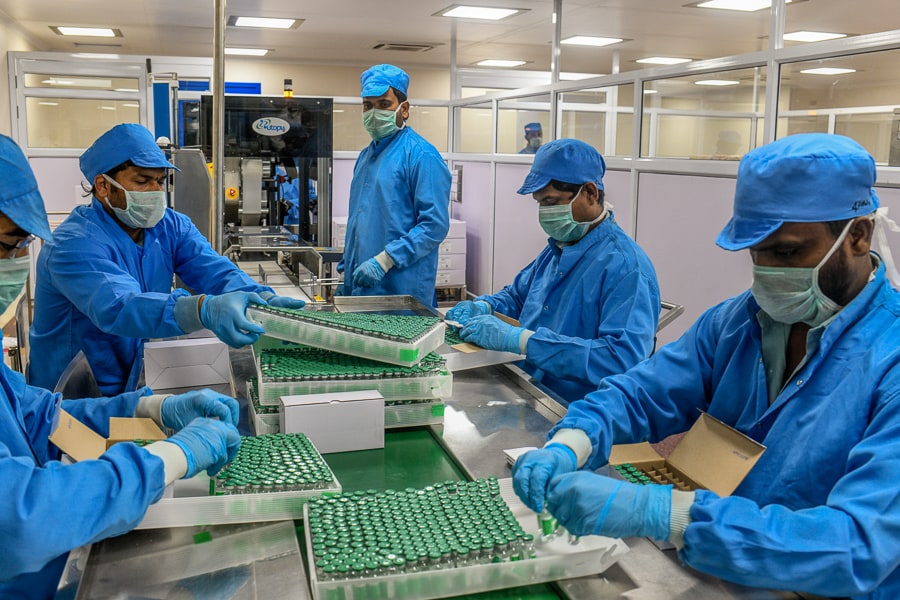
The newest diplomatic currency: Covid-19 vaccines
For India, its soft-power vaccine drive has given it a rejoinder to China, after years of watching the Chinese make political gains in its own backyard.
 Workers packing the Covishield coronavirus vaccine at the Serum Institute of India in Pune, Jan. 14, 2021. India, China, the UAE and others dole out donations in countries where they seek sway. In some cases, they are sending doses despite pressing needs at home.
Workers packing the Covishield coronavirus vaccine at the Serum Institute of India in Pune, Jan. 14, 2021. India, China, the UAE and others dole out donations in countries where they seek sway. In some cases, they are sending doses despite pressing needs at home.
Image: Atul Loke/The New York Times
NEW DELHI — India, the unmatched vaccine manufacturing power, is giving away millions of doses to neighbors friendly and estranged. It is trying to counter China, which has made doling out shots a central plank of its foreign relations. And the United Arab Emirates, drawing on its oil riches, is buying jabs on behalf of its allies.
The coronavirus vaccine — one of the world’s most in-demand commodities — has become a new currency for international diplomacy.
Countries with the means or the know-how are using the shots to curry favor or thaw frosty relations. India sent them to Nepal, a country that has fallen increasingly under China’s influence. Sri Lanka, in the midst of a diplomatic tug of war between New Delhi and Beijing, is getting doses from both.
The strategy carries risks. India and China, both of which are making vaccines for the rest of the world, have vast populations of their own that they need to inoculate. Though there are few signs of grumbling in either country, that could change as the public watches doses get sold or donated abroad.
“Indians are dying. Indians are still getting the disease,” said Manoj Joshi, a distinguished fellow at the Observer Research Foundation, a New Delhi think tank. “I could understand if our needs had been fulfilled and then you had given away the stuff. But I think there is a false moral superiority that you are trying to put across where you say we are giving away our stuff even before we use it ourselves.”
©2019 New York Times News Service




